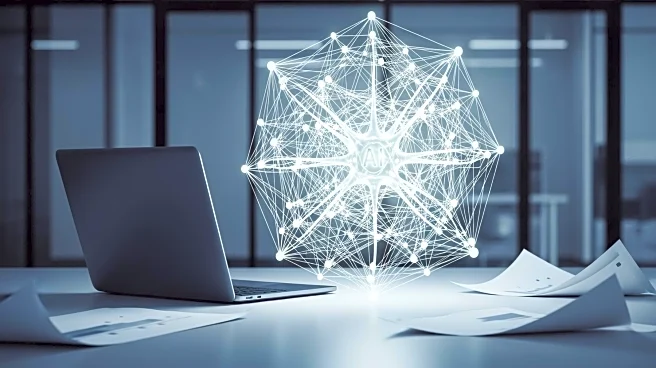What's Happening?
The integration of artificial intelligence in K-12 education is generating mixed reactions among educators. While AI is seen as a tool to enhance creativity and innovation, concerns persist about its impact on student thinking and dependency. A Microsoft
report highlights that over 30% of educators worry about AI-related plagiarism and cheating, while 20% fear students may become overly reliant on technology. Despite these concerns, AI is being used to foster creativity and collaboration in classrooms, with 68% of decision-makers aiming to accelerate innovation in teaching.
Why It's Important?
The use of AI in education has the potential to transform learning experiences, offering new ways to engage students and personalize instruction. However, it also raises questions about the balance between technology and traditional learning methods. Educators must navigate these challenges to ensure AI enhances rather than detracts from student development. The debate underscores the need for thoughtful integration of technology in education, considering both its benefits and potential drawbacks.
What's Next?
As AI continues to be integrated into educational settings, schools will need to develop strategies to address concerns about student dependency and ensure technology is used effectively. This may involve training educators on best practices for AI use and creating guidelines to prevent misuse. Ongoing research and dialogue will be essential to refine AI's role in education.
Beyond the Headlines
The ethical implications of AI in education include considerations of data privacy and the potential for bias in AI-driven tools. These issues highlight the importance of developing robust policies to protect student information and ensure equitable access to technology. The integration of AI also prompts discussions about the future of education and the skills students will need in a technology-driven world.















